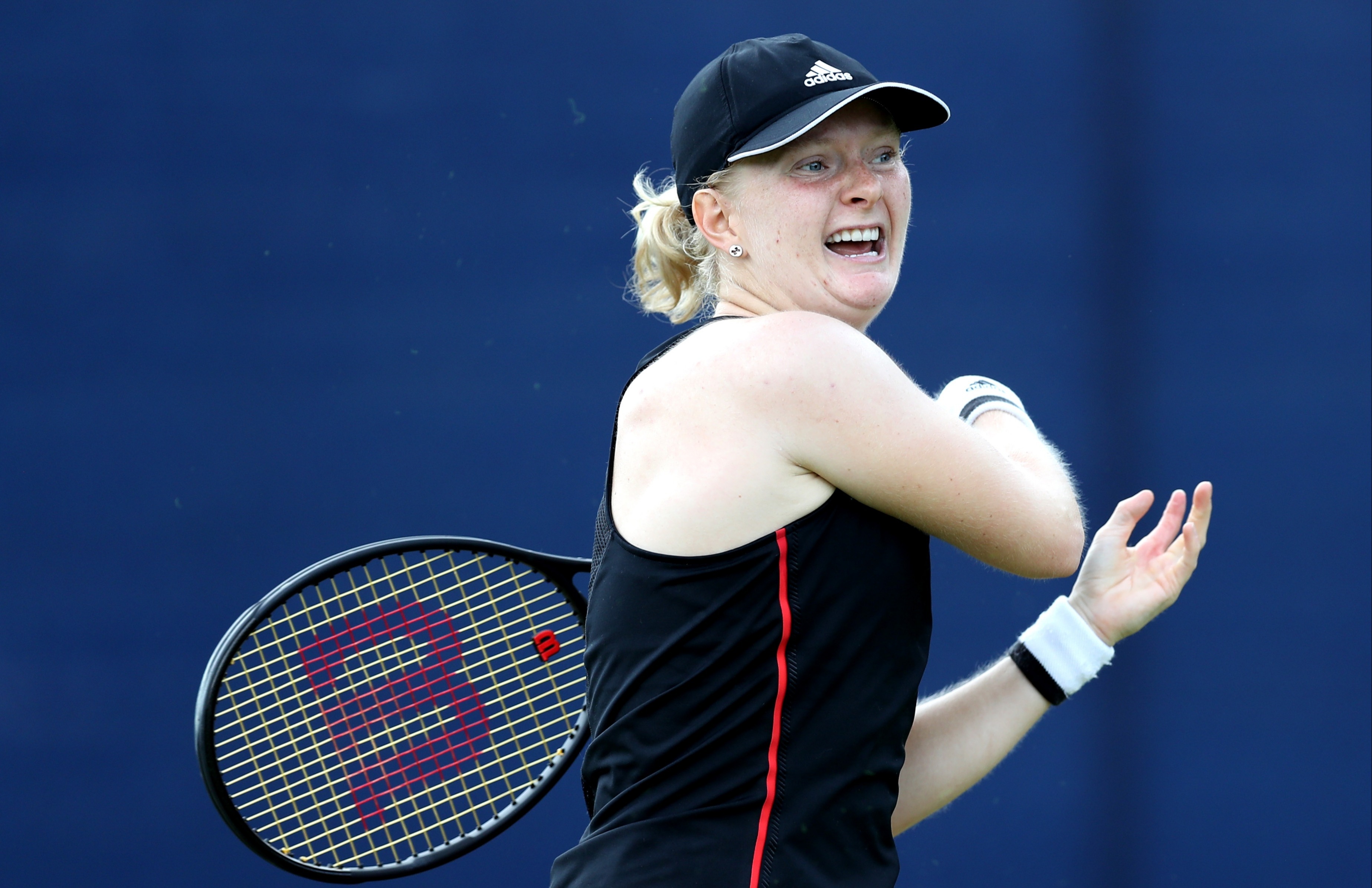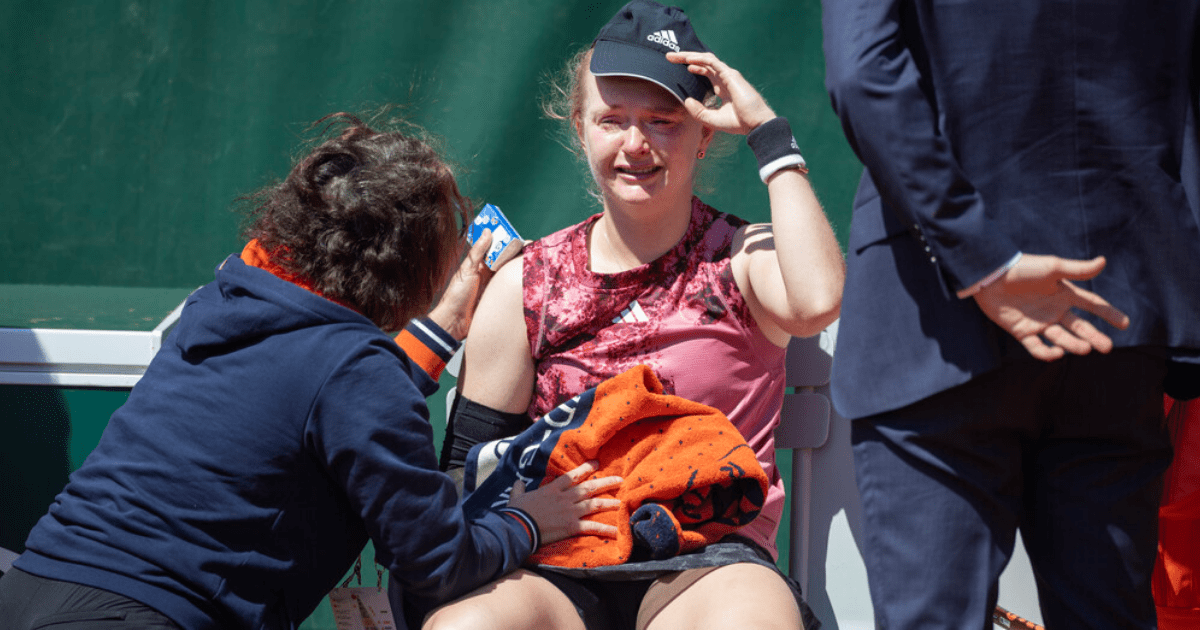Francesca Jones Forced to Withdraw, Breaks Down in Tears
Francesca Jones, the British tennis star, was left in tears after being forced to retire from the Australian Open. The 23-year-old had to be helped off the court due to cramp in her left leg during the second round of qualifying against Germany's Ella Seidel.
Pain and Cramp Forces Jones to Retire
Jones was leading 3-6 7-6 4-0 when disaster struck. She felt pain in her leg, which worsened as the match went on. Unable to win another game, Jones made the difficult decision to retire at 4-4 in the third set.
Emotional Moment on the Court
The realization that she could not continue hit Jones hard, and she broke down in tears. She had to be supported as she made her way to the locker room.
Setback in Jones' Quest for Grand Slam
If Jones had won against Seidel, she would have been just one victory away from securing a place in the main draw of the Grand Slam for the third time. However, this injury setback has put her dreams on hold.

Battling Injuries and Genetic Condition
Jones has faced numerous injuries throughout her career and has been absent from six of the last eight majors. She was born with a rare genetic condition called ectrodactyly ectodermal dysplasia, which affects her hands and feet. Despite these challenges, she defied the odds and pursued her dream of becoming a professional tennis player.
Source: [Insert Source]
Frequently Asked Questions
How important are nutrition and diet in training to become an elite tennis player?
Nutrition and diet are vital for any athlete aiming to perform at the highest level, and tennis players are no exception. Dietary intake is important for intensive training because it provides energy, facilitates recovery and reduces the risk of injury. An elite player’s diet typically includes a balanced mix of carbohydrates, proteins, and fats, along with essential vitamins and minerals. Hydration is another critical aspect, as maintaining good fluid balance is crucial to prevent fatigue and maintain concentration during play.
Can someone start playing tennis late and still become a professional?
Although it’s more difficult, it’s not impossible to achieve professional status by starting tennis later in life. The individual’s ability to play tennis, their work ethic and dedication, as well as the access they have to coaching and competition, will determine whether or not they are successful. The path to professional status may be more difficult for late starters, as they will have to focus on intensive and focused training.
What role does video analysis play in training top tennis players?
Video analysis can be a valuable tool to train and develop top tennis players. It allows for a detailed review of techniques, tactics, match play, and opponent patterns. Coaches and players utilize video analysis to dissect strokes, pinpoint areas for improvement, and strategize against future opponents. It can also help to recognize habits and patterns that are often overlooked in the heat of competition. This allows for more effective and focused practice sessions.
How do mental and psychological aspects factor into tennis training?
Tennis players need to be trained in mental and emotional training just as much as they do physical training. The players need to learn how they can manage their stress levels, stay focused, and deal with the emotional ups and downs of competition. Visualization, goal-setting and mental rehearsals can be common techniques. Sports psychologists can help athletes build resilience and develop coping mechanisms for stressful situations. They can also improve their mental game in order to match their physical ability on the court.
How important is it to compete in junior tournaments for a career in professional tennis?
Junior tournaments are a vital step on the road to a tennis professional career. These tournaments allow young athletes to practice their skills and gain match experience against other players. They also help them to learn how to handle the pressure of competition. Junior tournaments provide a good stepping stone for players to move up to higher levels of competition. They also have an impact on their ranking, their visibility in front of coaches and sponsors, as well as the overall development they make as athletes.
Statistics
- Research indicates that junior tennis players who compete in international tournaments gain significant psychological advantage and experience, with participation leading to a 50% better transition into professional rankings.
- Studies show that superior agility and speed among tennis players can reduce their reaction time by up to 30%, which is crucial during high-level matches.
- Nutritionists report that a tennis player’s diet should consist of about 55-60% carbohydrates, 15-20% protein, and 20-25% fats during intense training periods.
- Persistent mental training and sports psychology can help reduce performance anxiety by up to 60%, according to sports psychologists working with elite athletes.
- Engaging in structured video analysis sessions has been shown to improve a player’s tactical decision-making by approximately 35%.
External Links
wilsontennis.com
atptour.com
itftennis.com
optimumtennis.net
tenniscompanion.org
How To
Tennis Equipment Selection for Professional Training
Tennis equipment selection is crucial for professional development. First, you should invest in a racket of high quality that suits your playing style. Whether you are an aggressive baseliner or a serve-and volley player, your racket must enhance your strengths. Make sure it is properly strung, with the tension suited to your game. Tennis shoes should offer support, stability, and be appropriate for the court surface you most frequently play on. Wear clothing that is moisture-wicking and breathable to stay comfortable during training sessions. Accessories such as overgrips and dampeners are essential to keeping your equipment organized.

